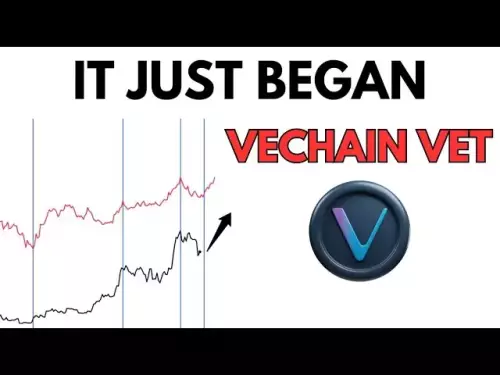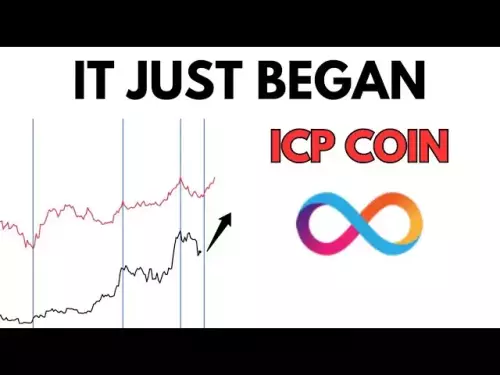 |
|
 |
|
 |
|
 |
|
 |
|
 |
|
 |
|
 |
|
 |
|
 |
|
 |
|
 |
|
 |
|
 |
|
 |
|
过去四年的重点是为美国加密行业的生存而战。反对敌对政府和

The cryptocurrency industry in the United States has faced a hostile administration and lawfare over the last four years. But now, the industry has a more pressing task: Helping to shape the legislation and policies that will govern it for decades to come. At the core of this fight is the issue of “decentralization.”
过去四年来,美国的加密货币行业面临着敌对的政府和法律。但现在,该行业面临着更紧迫的任务:帮助制定未来几十年管理该行业的立法和政策。这场斗争的核心是“去中心化”问题。
Put simply, decentralization is the distribution of control and decision-making, eliminating the need for a central authority – ensuring more choice, transparency, security, and resilience for users. While it may sound technical, decentralization is the core premise of blockchain technologies. The benefits of decentralization include promoting competition, creativity, and collaboration while protecting freedom and value – both financial and reputational.
简而言之,去中心化是控制权和决策权的分散,消除了对中央权威的需要——确保用户有更多的选择、透明度、安全性和弹性。虽然听起来很技术性,但去中心化是区块链技术的核心前提。权力下放的好处包括促进竞争、创造力和协作,同时保护自由和价值(包括财务和声誉)。
But why should decentralization be enshrined in law? By adopting policies that incentivize it, we can ensure three important outcomes:
但为什么要把权力下放写入法律呢?通过采取激励政策,我们可以确保三个重要成果:
First, we can guard against the big, centralized companies – from Big Tech, Big Finance, and Big Entertainment – entrenching their dominance in the burgeoning blockchain ecosystem. As we’ve seen across internet, banking, and entertainment networks, centralized control has led to consolidation and value extraction to the detriment of the people who use those products. The next iteration of the internet should focus on uplifting those in Little Tech, because the world needs more options, not the same few options.
首先,我们可以防范来自大型科技、大型金融和大型娱乐的大型中心化公司在新兴的区块链生态系统中巩固其主导地位。正如我们在互联网、银行和娱乐网络中看到的那样,集中控制导致了整合和价值提取,从而损害了使用这些产品的人的利益。互联网的下一次迭代应该集中于提升 Little Tech 中的人们,因为世界需要更多的选择,而不是同样的少数选择。
Second, we can ensure founders and builders are rewarded for giving up unilateral control and for creating systems that function more like public infrastructure, and less like proprietary technologies. The internet rapidly evolved because entrepreneurs could build on top of shared, open protocols like email and the web. Blockchains unlock a similar, but even more expansive, world of possibilities.
其次,我们可以确保创始人和建设者放弃单方面控制并创建功能更像公共基础设施而不是专有技术的系统而获得奖励。互联网迅速发展,因为企业家可以在电子邮件和网络等共享、开放的协议之上进行构建。区块链开启了一个类似但更广阔的可能性世界。
Finally, we can protect consumers and promote long-term investment and building. Minimum standards of decentralization would push digital assets to function more like commodities than securities, helping to guard against volatility, scams, and the casino culture of pump-and-dump schemes – without stifling innovation. While this could be bad news for crypto hedge funds and day traders, it would be great news for those looking to build useful products on blockchains.
最后,我们可以保护消费者并促进长期投资和建设。去中心化的最低标准将推动数字资产的功能更像商品而不是证券,有助于防范波动、诈骗和拉高抛售计划的赌场文化,同时又不会扼杀创新。虽然这对于加密货币对冲基金和日间交易者来说可能是个坏消息,但对于那些希望在区块链上构建有用产品的人来说,这将是个好消息。
Without these three incentives, the allure of centralization is too powerful for builders. Even though blockchains now make decentralization more technically possible and easier to implement at scale, it’s still far too convenient for builders to make unilateral decisions, rather than build consensus; and it’s tempting to hoard profits for a few, rather than distribute them among a community.
如果没有这三项激励措施,中心化的诱惑力对于建设者来说就太强大了。尽管区块链现在使去中心化在技术上变得更加可行,并且更容易大规模实施,但对于建设者来说,做出单方面决策仍然太方便,而不是达成共识;人们很容易为少数人囤积利润,而不是将其分配给整个社区。
So how do we incentivize decentralization?
那么我们如何激励去中心化呢?
We need a new “fit for purpose” regulatory framework for decentralized technologies like blockchains – one that isn’t predicated on the existence of centralized intermediaries, the way securities laws currently require. Such a framework could incentivize decentralization by reducing regulatory burdens; and by enabling broader market access for projects that both disseminate ownership and control as well as provide tailored disclosures.
我们需要一个针对区块链等去中心化技术的新的“适合目的”的监管框架,该框架不以集中中介机构的存在为基础,而证券法目前所要求的方式。这样的框架可以通过减轻监管负担来激励权力下放;并为既分散所有权和控制权又提供量身定制的信息披露的项目提供更广泛的市场准入。
This approach is not new – it builds on the SEC’s 2019 Framework for Digital Assets – but it also solves one of the key paradoxes that framework had introduced. The framework sought to mitigate risks to users by limiting reliance on centralized actors. But, it also incentivized projects to obfuscate their ongoing development efforts – or to even abandon work altogether – exposing users to significant risks.
这种方法并不新鲜——它建立在 SEC 2019 年数字资产框架的基础上——但它也解决了该框架引入的一个关键悖论。该框架试图通过限制对集中参与者的依赖来减轻用户的风险。但是,它也激励项目混淆其正在进行的开发工作,甚至完全放弃工作,使用户面临重大风险。
By reframing decentralization in terms of control – and combining control-related decentralization requirements with disclosure requirements – this new regulatory framework would empower founders to build decentralized technologies, helping them resist the convenience and ease of centralization. And it would do so without exposing consumers to the risks securities laws aim to address.
通过在控制方面重新构建去中心化,并将与控制相关的去中心化要求与披露要求相结合,这一新的监管框架将使创始人能够构建去中心化技术,帮助他们抵制中心化带来的便利和轻松。而且这样做不会让消费者面临证券法旨在解决的风险。
This approach would also be malleable enough to evolve as the industry grows. It therefore fosters innovation, accelerates the progress of decentralized technologies, and enables the crypto ecosystem to thrive in the U.S. over the years to come.
这种方法也具有足够的可塑性,可以随着行业的发展而发展。因此,它促进了创新,加速了去中心化技术的进步,并使加密生态系统能够在未来几年在美国蓬勃发展。
There will obviously be pushback from those in the industry looking to advance their own agendas and gains – but let’s not lose sight of the benefits of blockchain technologies, not just for crypto users, but for all.
显然,那些希望推进自己的议程和利益的行业人士会有所抵制,但我们不要忽视区块链技术的好处,不仅对加密货币用户,而且对所有人。
If we win the battle for decentralization, we can defend the purpose of crypto.
如果我们赢得去中心化之战,我们就可以捍卫加密货币的目的。
免责声明:info@kdj.com
所提供的信息并非交易建议。根据本文提供的信息进行的任何投资,kdj.com不承担任何责任。加密货币具有高波动性,强烈建议您深入研究后,谨慎投资!
如您认为本网站上使用的内容侵犯了您的版权,请立即联系我们(info@kdj.com),我们将及时删除。
-

- 与Messari一起导航加密投资:SEI及以后的指南
- 2025-09-19 02:02:54
- 通过Messari的分析解锁加密投资见解。本指南探讨了SEI的第二季度增长,专家意见和明智决定的关键趋势。
-

- XRP,美国储备和ETF Hype:有什么交易?
- 2025-09-19 02:00:45
- XRP正在围绕美国比特币储备的潜在ETF批准和讨论引起浪潮。 XRP设置为激增吗?
-

- Dogecoin,ETFS和Meme Coins:数字资产的新时代?
- 2025-09-19 02:00:00
- Dogecoin随着ETF和模因硬币趋势的发展,分析了对投资者的关键发展和未来影响。
-

-

-

- 肯尼亚代币Deepfake加密骗局:加密犯罪的新低点?
- 2025-09-19 01:58:28
- 肯尼亚代币传奇凸显了加密骗子的不断发展的策略,从深击到利用可信赖的人物。这是加密犯罪的新常态吗?
-

-

-























![[pycoin] pi硬币 - 二元列表的准备!!准备“这样” [pycoin] pi硬币 - 二元列表的准备!!准备“这样”](/uploads/2025/09/18/cryptocurrencies-news/videos/pycoin-pi-coin-preparation-binance-listing-prepare/68cc02628e956_image_500_375.webp)






































